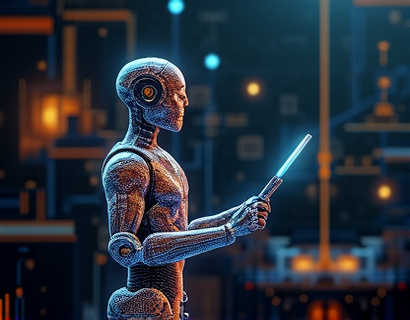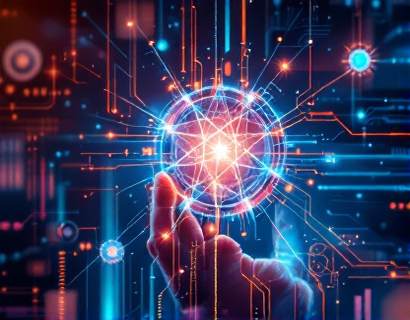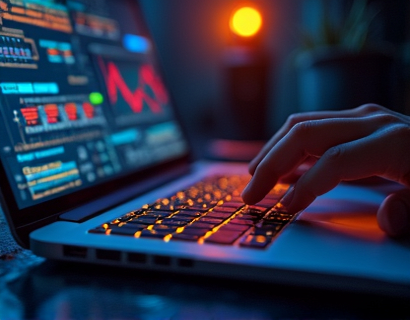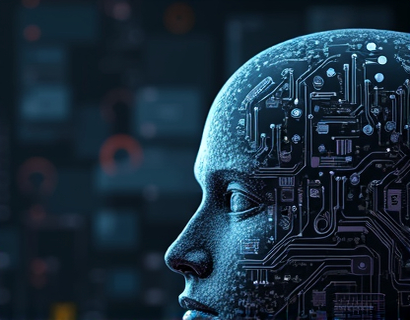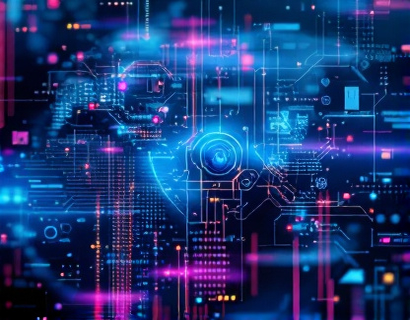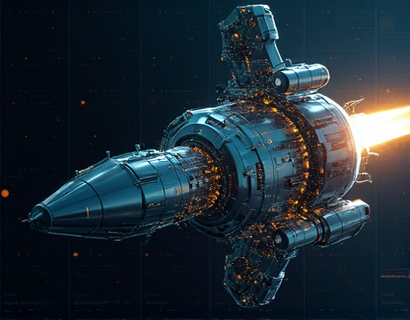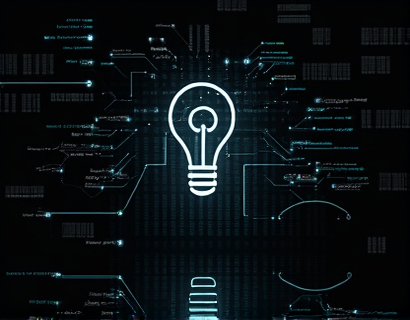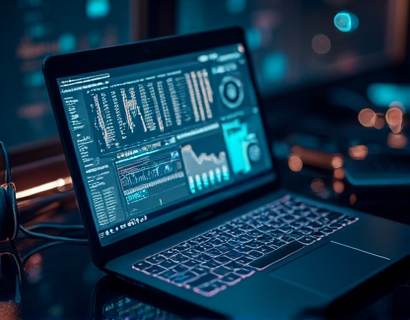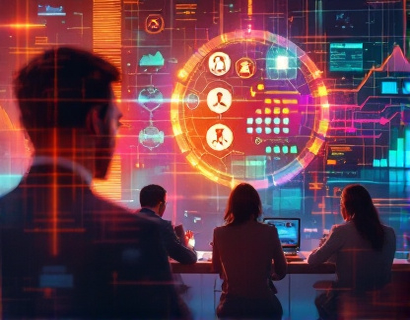Revolutionizing Digital Ecosystems: The Synergy of AI and Crypto
The intersection of artificial intelligence (AI) and cryptocurrency is giving rise to a new era of digital ecosystems, where innovators can harness advanced solutions to transform their interactions with crypto applications and services. This fusion is not just a technological advancement but a paradigm shift, redefining how we perceive and utilize digital currencies and blockchain technologies. For tech-savvy innovators, this convergence offers unprecedented opportunities to enhance their digital experiences and explore the frontiers of connectivity.
Understanding the Basics: AI and Crypto
To fully appreciate the impact of AI on the crypto landscape, it's essential to understand the fundamental concepts of both technologies. Artificial intelligence refers to the simulation of human intelligence processes by machines, particularly computer systems. These processes include learning (the acquisition of information and rules for using it), reasoning (using rules to reach approximate or definite conclusions), and self-correction. On the other hand, cryptocurrency is a digital or virtual currency that uses cryptography for security, operating on a decentralized network typically based on blockchain technology.
Blockchain, the underlying technology of cryptocurrencies, is a distributed ledger that records transactions across many computers in such a way that the registered transactions cannot be altered retroactively. This technology ensures transparency, security, and immutability, making it an ideal foundation for various applications beyond digital currencies, including supply chain management, voting systems, and identity verification.
AI in Crypto: Enhancing Security and Efficiency
One of the most significant contributions of AI to the crypto space is in the realm of security. Traditional security measures often struggle to keep pace with the evolving landscape of cyber threats. AI algorithms, however, can analyze vast amounts of data in real-time, identifying patterns and anomalies that indicate potential security breaches. Machine learning models can be trained to detect fraudulent transactions, predict market manipulations, and even automate the response to security incidents, thereby fortifying the crypto ecosystem against attacks.
Efficiency is another area where AI shines. Cryptocurrency exchanges and wallets can leverage AI to streamline operations, reduce latency, and improve user experience. For instance, AI-driven algorithms can optimize trading strategies by analyzing market trends, news sentiment, and historical data to make informed investment decisions. Smart contracts, self-executing contracts with the terms directly written into code, can be enhanced with AI to automate complex business logic, reducing the need for intermediaries and lowering transaction costs.
Personalized User Experiences through AI
The integration of AI in crypto applications allows for highly personalized user experiences. By leveraging natural language processing (NLP) and machine learning, crypto platforms can offer intuitive interfaces that understand and adapt to user preferences. Chatbots powered by AI can provide 24/7 customer support, answering queries, and guiding users through complex processes with ease. Personalized recommendations for investments, based on individual risk profiles and financial goals, can also be generated, making the crypto space more accessible and user-friendly.
Furthermore, AI can enhance the onboarding process for new users. By analyzing user behavior and data, AI systems can create tailored tutorials and educational content, helping users grasp the intricacies of crypto assets and blockchain technology. This not only improves user engagement but also fosters a more informed and confident user base.
Decentralized Finance (DeFi) and AI
Decentralized Finance (DeFi) is a rapidly growing sector within the crypto ecosystem, offering a range of financial services such as lending, borrowing, and yield farming, all executed on blockchain networks. AI plays a crucial role in optimizing DeFi protocols. For example, AI algorithms can predict liquidity patterns, optimize yield strategies, and manage risk more effectively. By analyzing market data and user behavior, AI can help DeFi platforms make data-driven decisions, enhancing their operational efficiency and user value.
Another exciting application of AI in DeFi is the development of AI-driven trading bots. These bots can execute trades based on complex algorithms that consider multiple factors, including market volatility, news events, and technical indicators. This level of automation and intelligence can significantly improve trading outcomes, making DeFi more attractive to a broader audience.
Crypto Asset Management with AI
AI is revolutionizing the way crypto assets are managed. Robo-advisors, AI-powered investment management platforms, can provide automated, algorithm-driven financial advice to investors. These platforms use machine learning to analyze user data, market conditions, and historical performance to create and adjust investment portfolios. For crypto investors, this means access to sophisticated investment strategies that were previously only available to institutional investors.
Portfolio optimization is another area where AI excels. By continuously monitoring market conditions and asset performance, AI can rebalance portfolios to maximize returns and minimize risk. This is particularly valuable in the volatile crypto market, where timely adjustments can make a significant difference in investment outcomes. AI can also help in identifying emerging trends and undervalued assets, providing investors with actionable insights.
Supply Chain and Crypto: A Synergistic Relationship
The supply chain industry stands to benefit greatly from the integration of AI and crypto. Blockchain technology ensures transparency and traceability, while AI can optimize various aspects of the supply chain, from inventory management to logistics. For instance, AI can predict demand patterns, optimize inventory levels, and streamline transportation routes, reducing costs and improving efficiency. When combined with the immutable record-keeping of blockchain, this creates a robust system that enhances trust and accountability among all stakeholders.
Crypto assets can also serve as a medium of exchange within supply chain ecosystems, reducing the reliance on traditional financial systems. Smart contracts can automate payments and ensure compliance with contractual obligations, further streamlining operations. This synergy not only improves operational efficiency but also opens up new financial opportunities for businesses involved in global trade.
Challenges and Considerations
While the potential of AI and crypto is immense, there are several challenges and considerations that innovators must address. Regulatory compliance is a significant concern, as the crypto space is still navigating a complex web of laws and regulations across different jurisdictions. AI systems must also be designed with ethical considerations in mind, ensuring fairness, transparency, and accountability. Data privacy is another critical issue, as the use of AI often involves the collection and analysis of large datasets, which must be handled responsibly to protect user privacy.
Technical challenges, such as the scalability and interoperability of blockchain networks, remain areas of active research and development. Ensuring that AI algorithms can seamlessly integrate with existing crypto infrastructure is essential for widespread adoption. Additionally, the energy consumption associated with AI and blockchain technologies is a growing concern, prompting the industry to explore more sustainable solutions.
Future Prospects: The Path Forward
The future of AI and crypto is bright, with numerous opportunities for innovation and growth. As technology continues to advance, we can expect to see more sophisticated AI applications in the crypto space, from enhanced security measures to more intuitive user interfaces. The convergence of AI and crypto is likely to give rise to new business models and use cases, further expanding the potential of digital ecosystems.
For innovators, staying at the forefront of this revolution requires a deep understanding of both AI and crypto technologies. Collaboration between developers, researchers, and industry experts will be crucial in overcoming the challenges and realizing the full potential of this synergy. By embracing these advanced solutions, innovators can create more robust, efficient, and user-friendly digital ecosystems, paving the way for a more connected and prosperous future.





